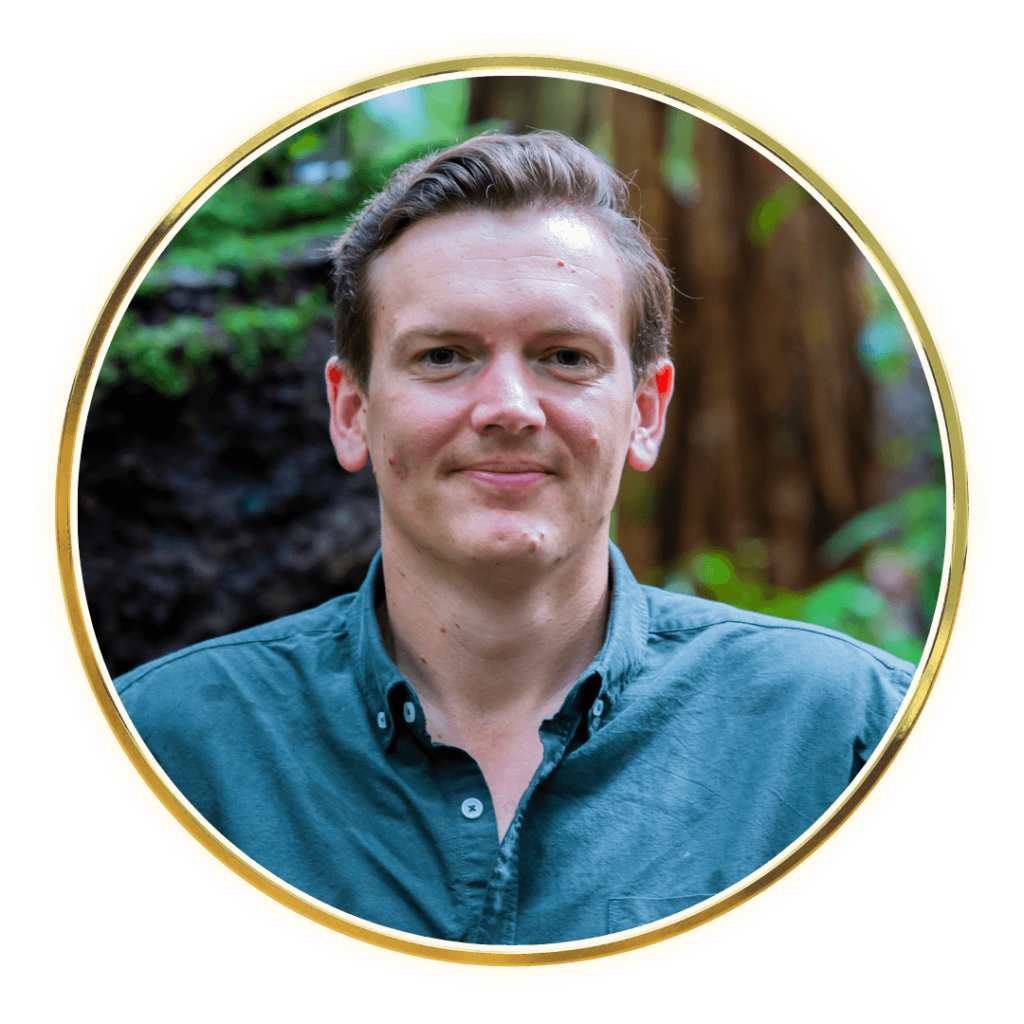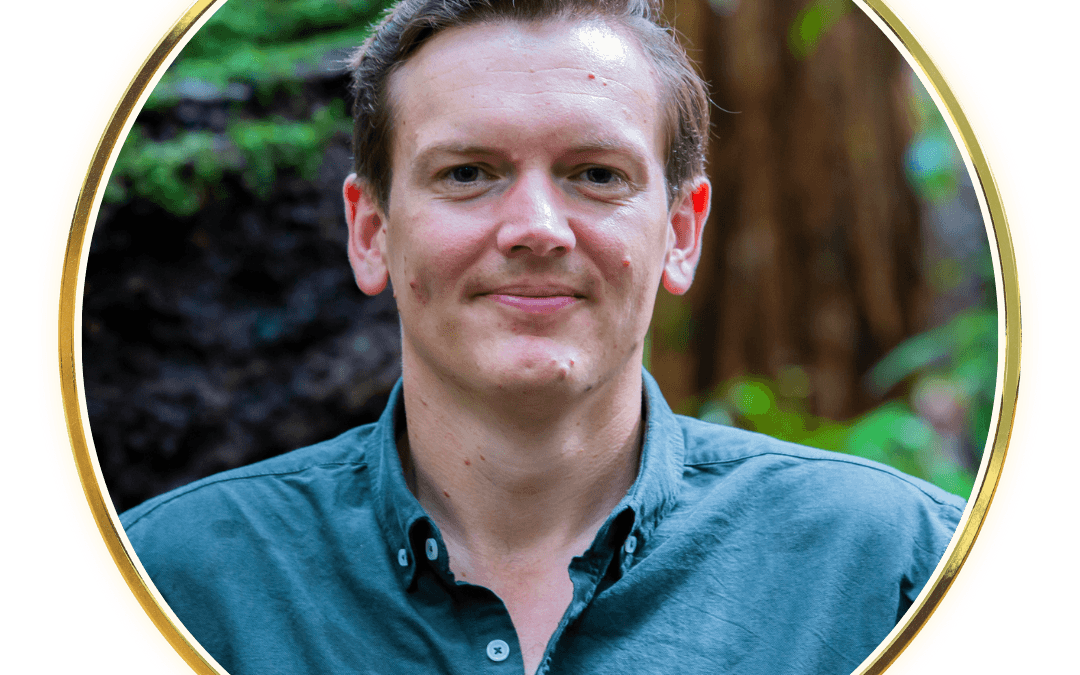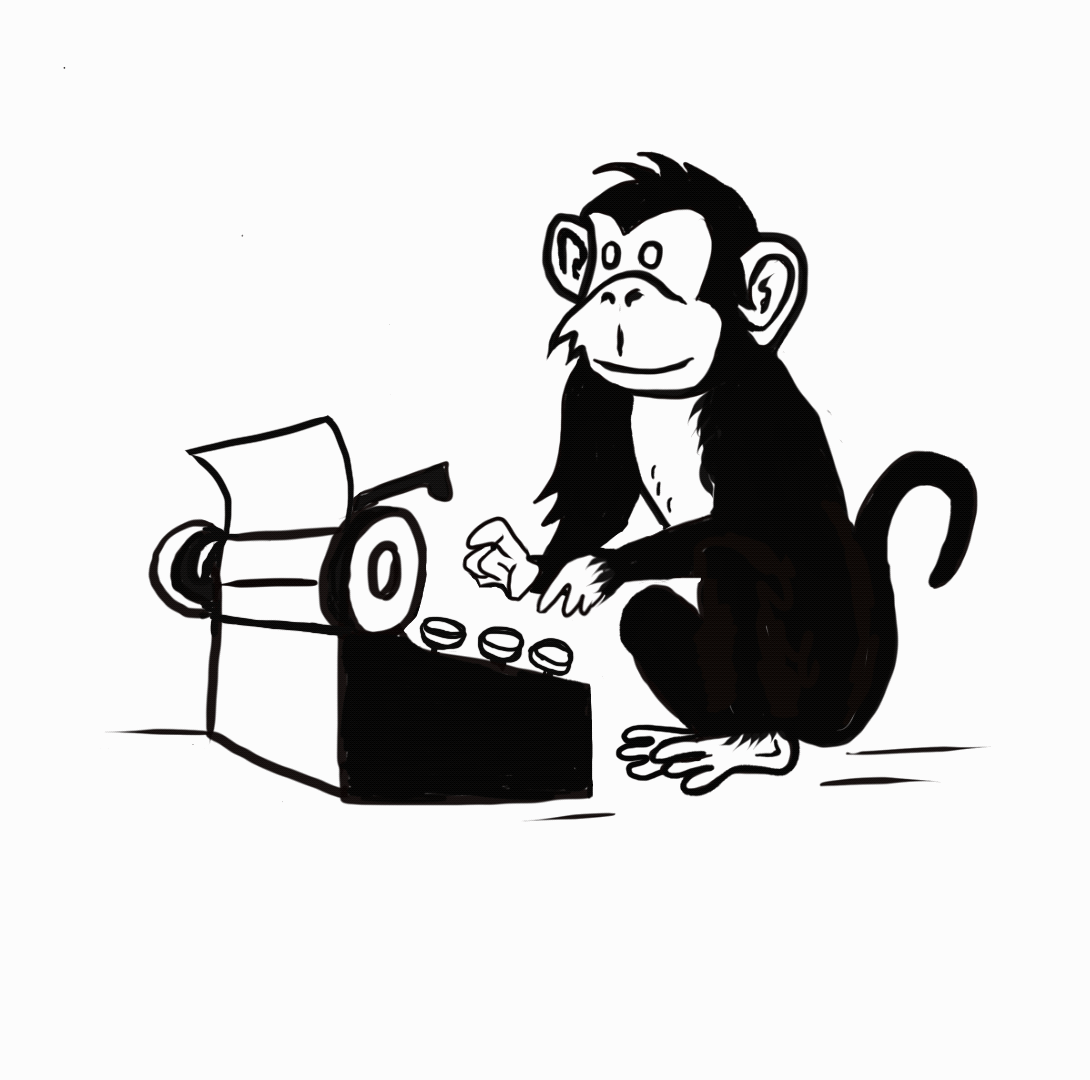Simon Drew is a musician, poet, philosopher, documentary filmmaker, and international traveler. With his partners Sharon Lebell and Kai Whiting, he is one of the proprietors of the Walled Garden, a hub for events, mentoring, and philosophical exploration. His book “The Poet &The Sage” is available here. We’re pleased to have caught up with him and are proud to share this inspiring interview. For even more Simon, follow him on Facebook and Instagram.

1. What led you to embrace Stoic philosophy?
Around the year of 2015, I was on a completely different path. I was leading my jazz band on the world’s largest cruise ships, I had informally left the religion of my youth a few years earlier, and while life was flowing along quite nicely for me, I was nonetheless involved in lots of personal development and seeking. Tim Ferriss—someone I listened to on a regular basis—often mentioned a philosopher who inspired him by the name of Lucius Annaeus Seneca. After just a brief encounter with Seneca’s works, it became apparent to me that Seneca had already said most of the profound insights I had been learning from modern personal development leaders, only he said it over 2,000 years ago! My mind was immediately opened to a new world—that of philosophy. Philosophy, I realized, was not simply intellectual ideas being discussed in an ivory tower with academics and elites. No, philosophy (at least according to the Stoics) was the vital art of living a good and meaningful life! Seneca liberated philosophy for me, and since that day, I’ve been inspired to continue my philosophical study and practice. More specific to my Stoic journey, however, I should say that my understanding of Stoicism has deepened over time, and so has my love for the more theological and spiritual aspects of this profound philosophy. Stoicism has been a redemptive force in my life, just as it has been for countless individuals throughout history.
2. You’re a poet and a musician. How does Stoicism come into play in your art?
I love this question because I have to give somewhat of a paradoxical answer. On the one hand, my poetry and music never come from the motivation of wanting to teach philosophy or display my own philosophical ideals. On the other hand, one cannot help but be on full display when creating art as vulnerable and revealing as poetry and music, and I’ve absolutely noticed that the Stoic philosophy and theology show up in full force throughout many of my writings. Poetry and music are different lenses through which one can view reality, and in that sense, I believe that one is always practicing philosophy (well or poorly, for sure) when one is engaged in the arts, seeing as one must by choice or ignorance have a certain philosophy of creativity or artistry. When I’m creating poetry, for example, I’m never thinking “how can I prove a philosophical point here?” That would not be art. Rather, I’m letting go of the need to teach or inform, and I’m simply allowing myself to release the inner contents of my soul onto the page, or in the case of music, through the instrument. What I’ve learned is that if my approach is free enough, the truest insights of my soul are made manifest, and it’s in the reflection on these insights that learn more about the nature of my soul and the world around me. That’s my philosophy of true artistry. I believe poetry and music to be the most profound ways to explore the archeology of the soul, and perhaps the most visceral example of this is found in my book, “The Poet & The Sage.” Creating this work now seems like a dream–I opened my mind and allowed everything to flow out. I often say that it took me around six months to write “The Poet & The Sage,” and it will take me the rest of my life to figure it out! Now, as I’ve explored the contents of this work, I continue to find lessons and insights that not only explain many of the profound ideas of the ancient Stoics, but I’m learning that the very mechanism I used to understand these ideas was not just reading the Stoics, but it was actually the artistic endeavor—something that I now view as my most valuable partner for the exploration of new ways of seeing and being.
3. What’s the mission of your Stoic website, the Walled Garden?
Carrying from my previous answer, I would start by suggesting that The Walled Garden is not a “Stoic” website. Rather, The Walled Garden (Philosophical Society) is somewhat of a social experiment in which we’re asking the question: What good can we do in the world by bringing together philosophers, artists, and seekers of good will to explore the nature of truth, wisdom, virtue, and beauty, which we hold are all reflections of the Divine? Perhaps it would be helpful to post here the inscription found on the home page of our website:
“Despite the widespread material prosperity and hyper-connectedness of our times, many individuals still find themselves feeling empty, lonely, and unfulfilled.
We had hoped for gardens, but we found a desert.
We’re responding to the meaning crisis of our times by liberating the wisdom of the ages in service of humanity today and building relationships with seekers from around the world as we wander the desert together.”
So far, we’ve been building the foundation of our community, but moving into 2023, I’m confident that we’ll be able to continue moving from strength to strength, and I genuinely believe that with the caliber of philosophers and seekers who we currently have in our community, we can make our way toward being one of the greatest philosophical societies the world has seen, with the measure of this being only our collective and individual works in the world.
4. You recently moved from Australia to the U.S. Which country is more naturally Stoic and why?
I don’t know if I’d categorize either nation as particularly “Stoic”, though I would say that in the colloquial sense of the term, Australia wins hands down. Australians are naturally tough people. The landscape and the conditions of our early colonization (we’re the descendants of criminals and explorers!) seem to be the catalyst for this. Australians are tough people because they have to be. We wrestle against constant natural threats like drought, floods, cyclones, and the rest. On top of this, we share with our British counterparts a certain dry sense of humor which lends itself to the popular idea of “stoic” with a little s. But nonetheless, if we’re talking about which country is more “Stoic”, then there really is no answer. Being a Stoic comes down to the individual, and further, to the specific moment. Am I being mindful at this moment? Am I making the most appropriate choice based on the information at hand? Am I being attentive to the needs of this moment? Do I believe that Virtue is the only true good? These are questions that would render an individual either Stoic or not, though there’s certainly a lot more dogma to it. So on a national level, I guess we could currently say that both the USA and Australia have a lot of work to do! Tut tut, nations (to which we all contribute, let’s not forget!).
5. When was the last time you screamed your lungs out for any reason?
I have to admit that I’m now laughing as I write this. I didn’t think I could come up with an answer for this question–I’m a generally quiet person. Nonetheless, it came to me! My wife and I have an extremely joyful habit of screaming our lungs out at sporadic but common moments. Before you think I’m in an unhealthy or abusive relationship, give me a moment. We usually choose to scream like this if either of us are driving the car and make a simple mistake. Let’s say I’m driving and I almost turn out onto the road when another car is coming. If Jen sees this (even if I have already seen it), she might scream as if we were literally about to die. I would do the same. This sounds psychopathic, and there are many other situations when we might do this, but it is nonetheless one of my most cherished habits. We always end up laughing hysterically at just how out of whack (is that an Australian saying?) the risk-to-reaction ratio is in these reactions. It’s a therapeutic habit, indeed!
Bonus: What question should we have asked, and what’s the answer?
Well, I guess I’ll go to something light and on my mind at the moment. What is my impression of America so far? I have to say that I adore this country, and I consider my living here to be a very important part of my own identity. Having grown up as a Mormon, I was always exposed to American culture. Then in my earlier 20s I spent considerable time over here working on cruise ships with my jazz band. Now, living in California, I’m getting yet another sense of this great country. America seems to be in a moment of profound crisis in relation to its national identity and common purpose, and I feel that more viscerally living here. I myself am constantly torn between the beauty and tragedy that I see. On the one hand, I live in a part of the country where most people are struggling just to get by. Homelessness is rampant, I am often approached by people needing a little money for fuel or food, and it’s clear that there’s a lot of work to do to invite all people into the game that is the USA. On the other hand, America is clearly one of the greatest and most beautiful social experiments in all of history! Living here, I feel the call to adventure, and I see the myriad of opportunities here for those who are on a mission and who have the staying power to make their way in the world. It’s my hope and prayer that America will soon reunite as a nation and, as my Dad recently told me, that America will once again “teach the world how to dream.”

